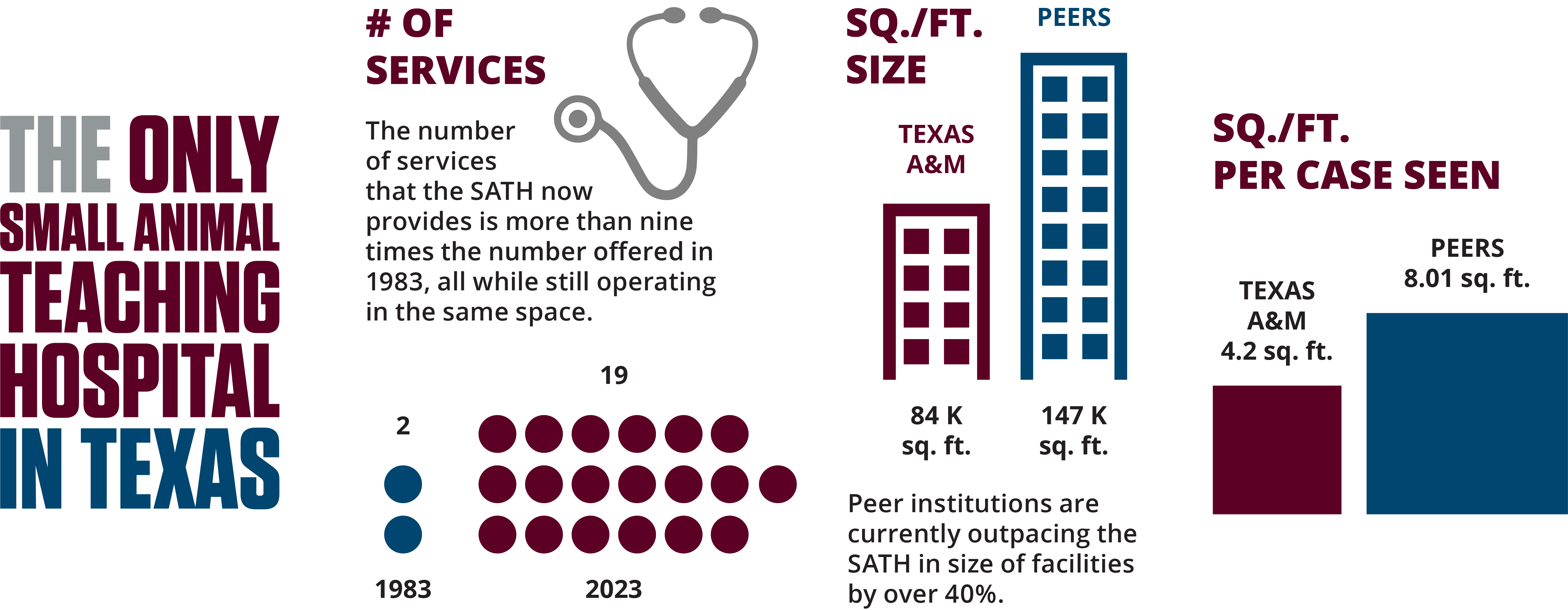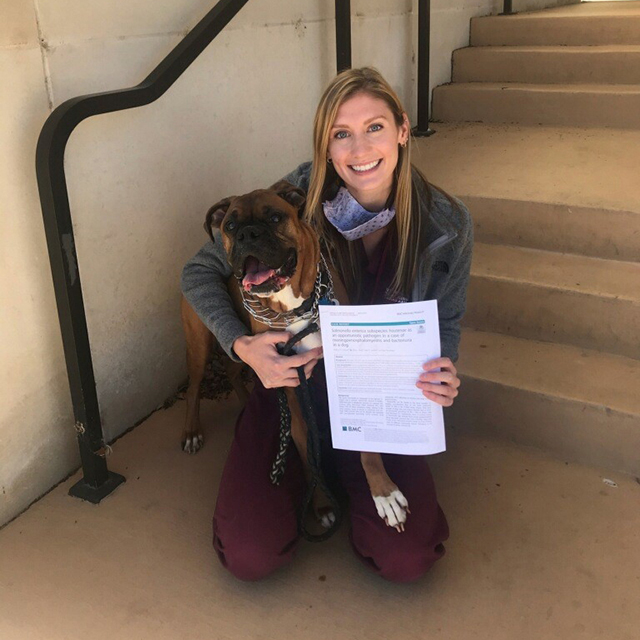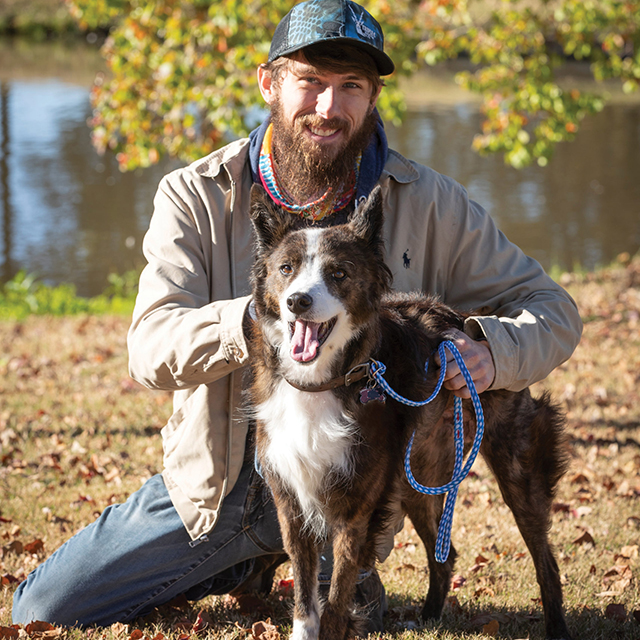Unparalleled Leading-edge Patient Care
Owners from all 50 states in the U.S.—as well as from countries across North America and around the world—have brought their animals to be evaluated by Texas A&M’s highly acclaimed veterinary specialists. This both reinforces our veterinarians’ reputation for excellence and emphasizes owners’ trust that their companion animals receive the best care at our Small Animal Teaching Hospital (SATH).
Your gift to our new, Next-Generation Small Animal Teaching & Research Hospital (NGSATRH) will help further enhance our 19 unique hospital services, expand the use of equipment unavailable at other teaching hospitals, improve our diagnostic imaging capabilities, and advance our in-house laboratories such as our Gastrointestinal (GI) Lab, which provides specialized testing services to clients around the world.

Companion Animal Care Experts
Our SATH also contributes to the level of care companion animals receive by:
-
- Housing a specialty-care center in which research-driven advancements inform patient-care programs
- Leading in the implementation and assessment of novel approaches, such as telemedicine, to improve access to basic and advanced patient care and monitoring
- Recognizing the importance of the human-animal bond and offering a spectrum of care for clients and patients
- Improving the health of animals and human beings through clinical trials that give patients access to treatments not yet widely available


Life-Changing Medical Breakthroughs

Saving Max's Life

Rare Procedure Saves Kitten

Ferret Receives Pacemaker

Tackling Veterinary Firsts

Saving Animals Through Innovation

